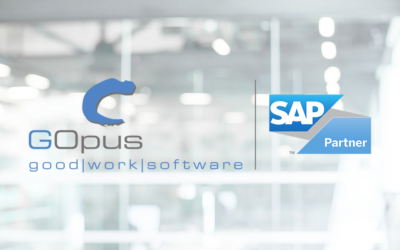There is no way around the introduction of electronic invoices in Germany. In mid-April, the Federal Ministry of Finance (BMF) sent a discussion draft on the introduction of electronic invoicing to the leading business associations. It is expected that from January 1, 2025, all companies in Germany will be obliged to only send and receive electronic invoices. Similar regulations already apply in some other European countries.
The coalition agreement and the reporting system
The coalition parties SPD, Greens and FDP have agreed in their coalition agreement to introduce a nationwide uniform reporting system for the creation, checking and forwarding of invoices. This means that invoices must be created, sent and received in a structured electronic format. Invoices in paper form or in PDF format are no longer accepted as the invoice information is not available in a structured manner. An originally electronically generated, structured data set is a prerequisite for transmitting the invoice data to the tax authorities.
What specifically will companies face?
In contrast to countries such as Italy or Poland, there will probably be no “clearance model” in which complete invoices must be submitted in advance to the tax authorities for content review. Instead, the process will work like this:
- Content check: Check whether all required mandatory information is present.
- Format conversion and checking: checking the structure and syntax according to CEN 16931.
- Extraction of reporting data: Extraction of the relevant data from the electronic invoice.
- Transfer of reporting data: Transfer of reporting data to the national platform.
- Parallel transmission to the recipient: Simultaneous transmission of the electronic invoice to the recipient's platform.
This process ensures that both the reporting data is sent to the tax authorities and the actual invoice document is sent to the recipient at the same time.
The connection with the ViDA initiative
The introduction of electronic invoicing in Germany is closely related to the ViDA initiative (VAT in the Digital Age - ViDA). The aim of this initiative is to modernize and harmonize the existing VAT system in the EU in order to curb tax fraud. From January 1, 2028, the new regulations will be binding across the EU. At this point, a transaction-based reporting system for intra-community B2B sales will also be introduced, in which only certain invoice data will be transmitted to the tax authorities. The prerequisite for this will be the electronic invoice.
The transition period until January 1, 2025
After the BMF has sent the discussion draft to the most important business associations, a comment phase follows. Companies and associations have until May 8, 2023 to submit statements and comments. This feedback is evaluated and possible adjustments are incorporated into the draft. The draft is then approved by the cabinet and published in the Federal Law Gazette.
In this phase, feedback is expected on the following topics in particular:
- Possible time staggering to relieve the burden on small and medium-sized companies.
- Permitted invoice formats, particularly industry-specific requirements.
Regardless of the details, one thing is clear: Electronic invoicing will be mandatory in Germany. Companies should therefore deal with the issue of e-invoicing at an early stage and adapt their accounting processes accordingly in order to be ready in time for the expected deadline of January 1, 2025. Information sources such as e-invoicing updates and expert advice can be helpful.
Webinar: Legal e-invoicing requirement from 2025?
Why e-invoicing pays off even without obligation
On October 26, 2023 we will be hosting GOpus together with our partner, the Peppol access point CapeVision a webinar from Berlin on the topic. Wladimir Mohr (GOpus) and Marcus Jeschke (CapeVision) will give a lecture on the topic “Legal e-invoicing requirement from 2025? Why e-invoicing pays off even without commitment” and show how you can effectively create e-invoices in SAP today and transfer them to the Peppol network.
Are you interested in taking part in the webinar and would you like to gain valuable information on the topic of e-invoicing? Then please register using the link below. We look forward to your participation!

Chief Executive Officer






